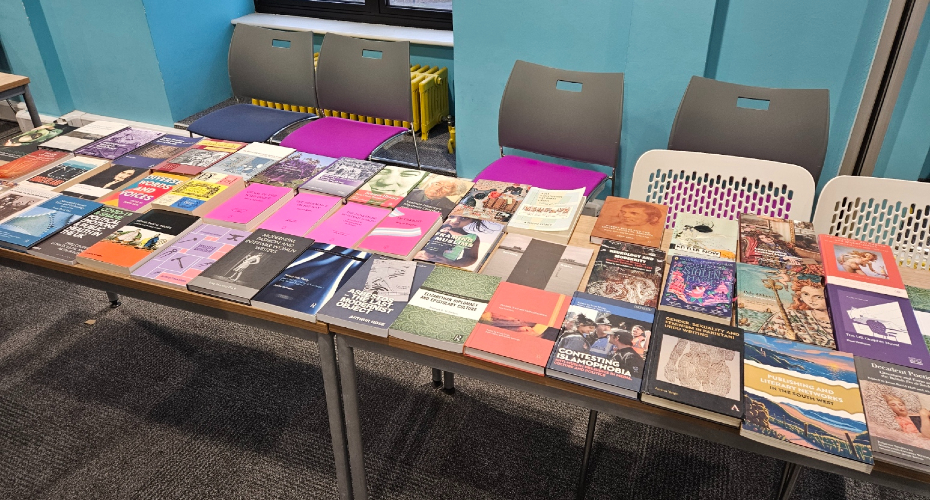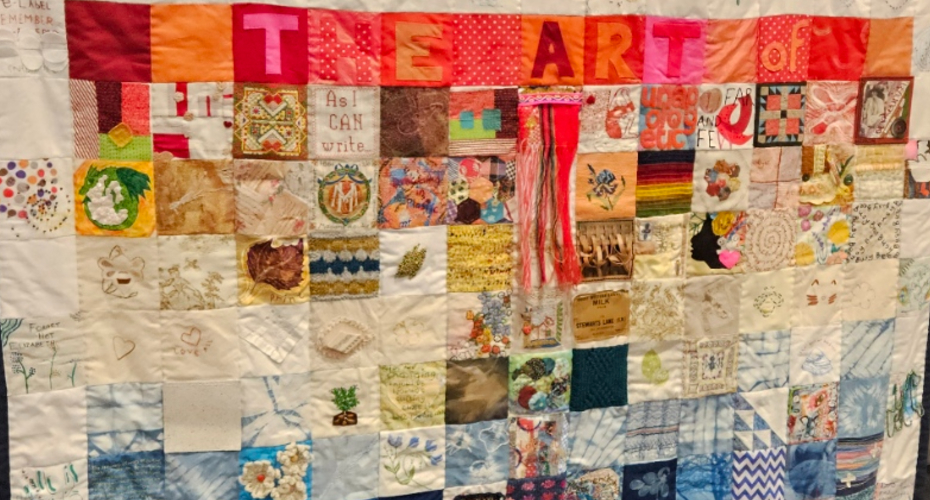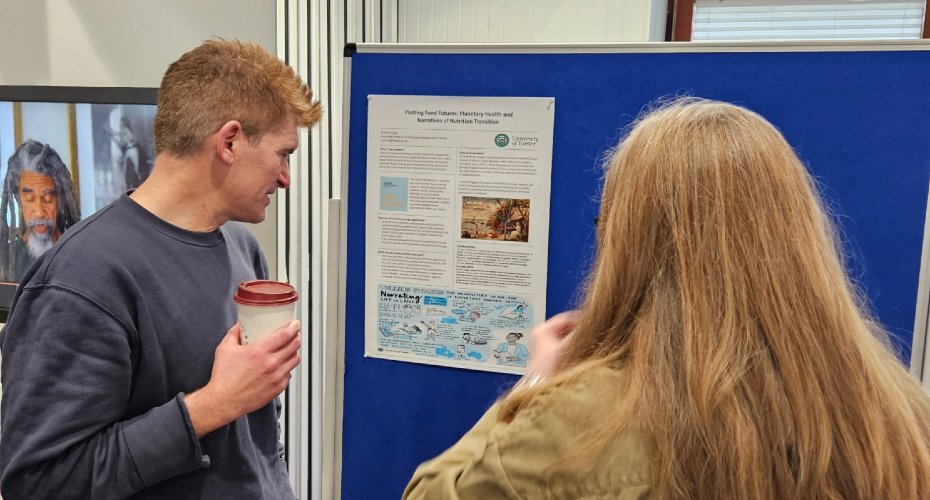A unique research collaboration with the Met Office that promises to unlock its archives and reframe some of the human stories behind the development of climate science was among a host of scholarly projects highlighted and celebrated at a University event this month.
Organised by the Department of English and Creative Writing, the research showcase revealed the breadth of work taking place, and how academics are using their expertise to tackle pressing societal issues.
These included areas as diverse as food security, chemicals and pollutants, contemporary publishing, and recovering previously suppressed social histories.
Held in the Queen's Building on the Streatham campus, the showcase aimed to forge new connections across the Faculty of Humanities, Arts and Social Sciences, and with the broader University community.
"We aimed to showcase the breadth and depth of the impact-driven work that is underway in our department," says Laura Salisbury, Professor of Modern Literature and Medical Humanities, and lead for research in the department.

"English and Creative Writing is an outward-looking department, one that is pushing the boundaries of the discipline, and that is one of the reasons why we are so invested in making connections with colleagues across HASS and the University."
At the showcase, Andrew McRae, Professor of Renaissance Poetry, opened proceedings with an overview of the diversity of work now undertaken within the discipline of English and Creative Writing.
There followed talks by five academics, including Dr Ben Smith, whose AHRC-funded fellowship A History of Storms: New Approaches to Climate Fiction and Climate Literacy sees him work with the Met Office Archive. Through the fellowship, Dr Smith will undertake a new work of 'historical climate fiction', which will tap into the human stories contained in the archive and reframe them for the contemporary - and changing - world.
Another AHRC project featured was The Art of Fiction, led by Dr Patricia Zakreski, which is investigating the connection between women's writing and decorative arts from the second half of the 19th century. Dr Zakreski brought to the event the large piece of collaboratively created patchwork art, titled Women's Work, for which patches of material were sent by collaborators from around the world.

Dr D-M Withers' work with Lurid editions - reprints of LGBTQ books that have fallen out of circulation - was also showcased, looking at how recovering histories can help make sense of difficult pasts and build community in the present.
The showcase also included literary and historical work on the development of modern meat-eating practices in Britain, by Professor Paul Young; Professor Ayesha Mukherjee's work on famine in India and Britain, 1550-1800, which included engagement with contemporary communities in India living with experiences of death; Dr James Reath's work on the cultural history of aerosols and chemical spraying in the UK; and Dr Ellen Wiles's immersive audio work on water systems undertaken in collaboration with South West Water at Exeter's Centre for Resilience in Environment, Water and Waste.
These presentations were supplemented by a wealth of input from colleagues, who displayed academic posters, films and a variety of physical objects associated with their research.
"It was wonderful to see such variety in disciplinary approaches represented at the showcase, both in the nature of the work presented and in that of colleagues who attended from across the institution," added Professor Vike Plock, Head of Department.







